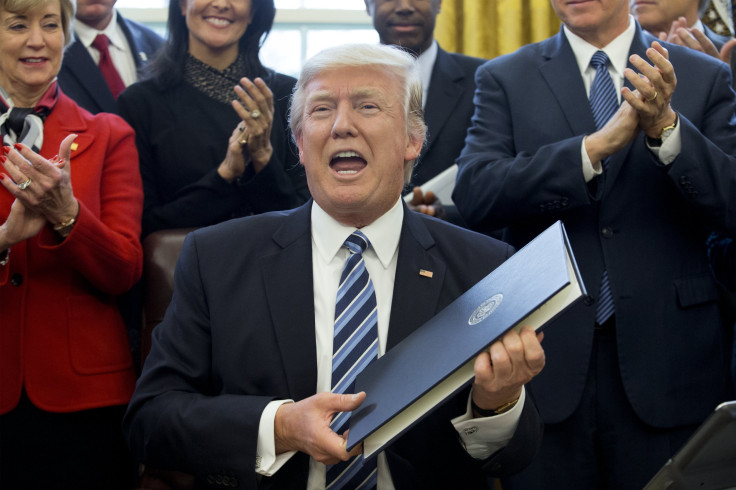List Of Legal Challenges Trump's Travel Ban Executive Order Has Faced So Far

President Donald Trump's revised executive order on travel ban that sought to temporarily halt new visas to six Muslim-majority countries and suspend refugee admissions, will once again be the focus in the next few days. The legal battle over the order will begin Monday, when a federal appeals court in Richmond, Virginia, will hear arguments about the legality of the ban, reports said.
About two months ago, a federal judge in Maryland had concluded that the travel ban likely violates the Constitution as the ban was discriminatory in nature against Muslims. District Judge Theodore D. Chuang had written: "The history of public statements continues to provide a convincing case that the purpose of the Second Executive Order remains the realization of the long-envisioned Muslim ban."
Read: Why Did Travel Booking Site Wander Launches #AntiTravelBan Campaign?
Lawyers for the International Refugee Assistance Project had written: "President Trump publicly committed himself to an indefensible goal: banning Muslims from coming to the United States," according to National Public Radio.
In March, just two days after Trump signed the new version of his travel ban executive order, the state of Hawaii filed a suit, arguing the new federal order will harm Muslims living in the Pacific island state. It became the first state to challenge it, reports said.
Five other states too allied together to challenge Trump's revised travel ban order. They were Oregon, Washington, Minnesota, New York, and Massachusetts. Oregon argued the order hurts residents, employers, universities health care system and economy.
The Washington state argued that the revised travel ban has "same illegal motivations as the original" and harms residents, although fewer than the first ban. Minnesota questioned the legality of the move, suggesting the Trump administration cannot override the initial ban with a fresh executive order. New York said that the revised travel ban order was "a Muslim ban by another name." The state of Massachusetts had said that the new ban "remains a discriminatory and unconstitutional attempt to make good on his campaign promise to implement a Muslim ban," BBC reported.
Bob Ferguson, Washington state's attorney general had said that the states who jointly filed the lawsuit against the travel ban order had a solid legal argument. He said the president's new immigration order is "narrower" than the original version, but "that does not mean that it's cured its constitutional problems," reports said.
Trump had signed his first executive order travel ban Jan. 27. It was promoted as an anti-terrorism measure. The order blocked citizens from seven Muslim majority countries — Iran, Iraq, Libya, Syria, Somalia, Sudan, and Yemen — from entering the country for 90 days. It also made the U.S.' refugee program stricter by banning asylum-seekers from Syria indefinitely and refugees from every other country for 120 days.
After the first travel ban executive order too, dozen lawsuits were filed against it. James Robart, the District Judge with whom the five states had filed a lawsuit, had acted on one of the lawsuits filed for the first executive order, in February. He issued a nationwide restraining order prohibiting federal agents from enforcing the ban. When the Trump administration challenged the judge's decision, an appeals court refused to reinstate the ban.
© Copyright IBTimes 2024. All rights reserved.






















